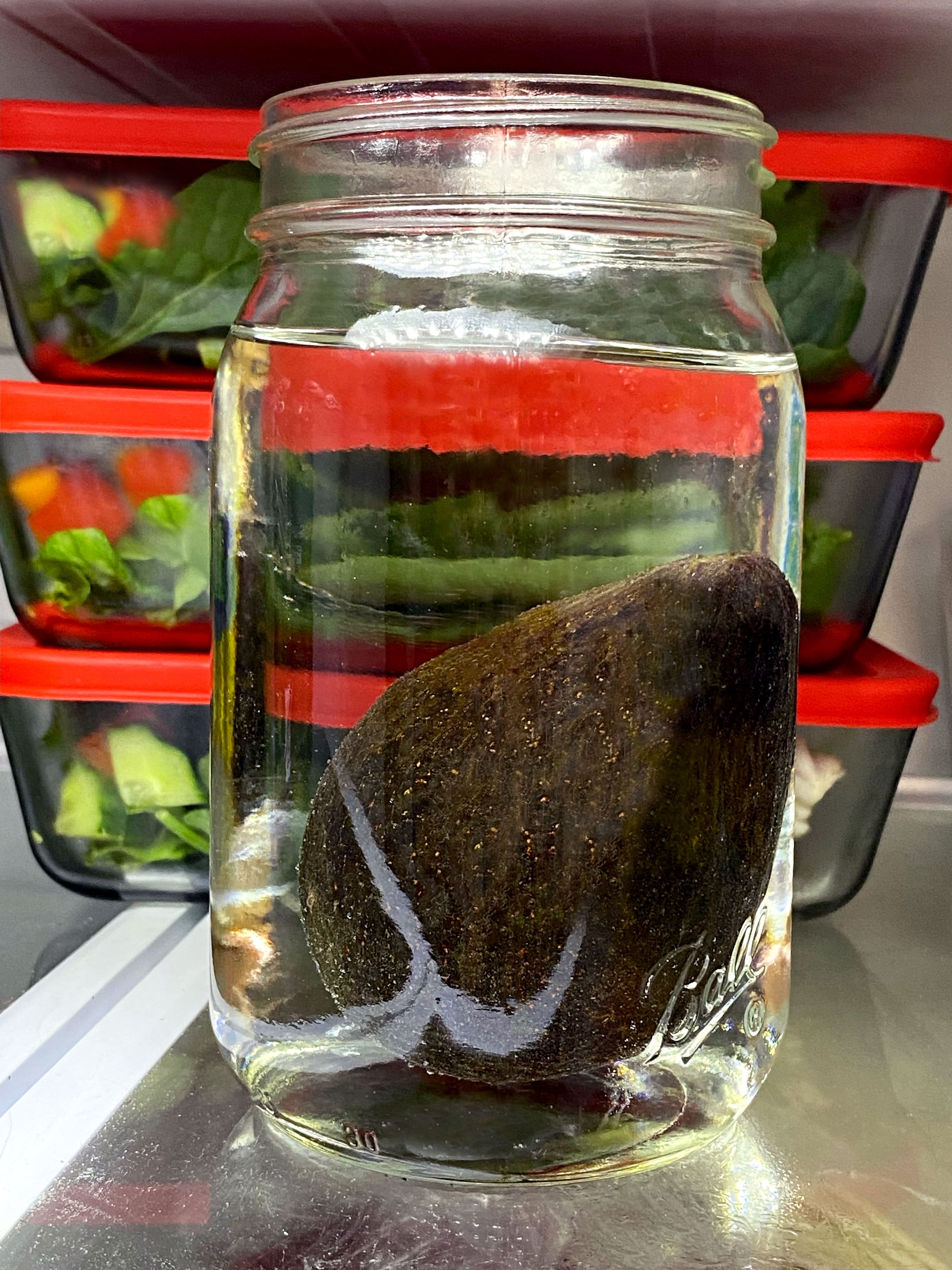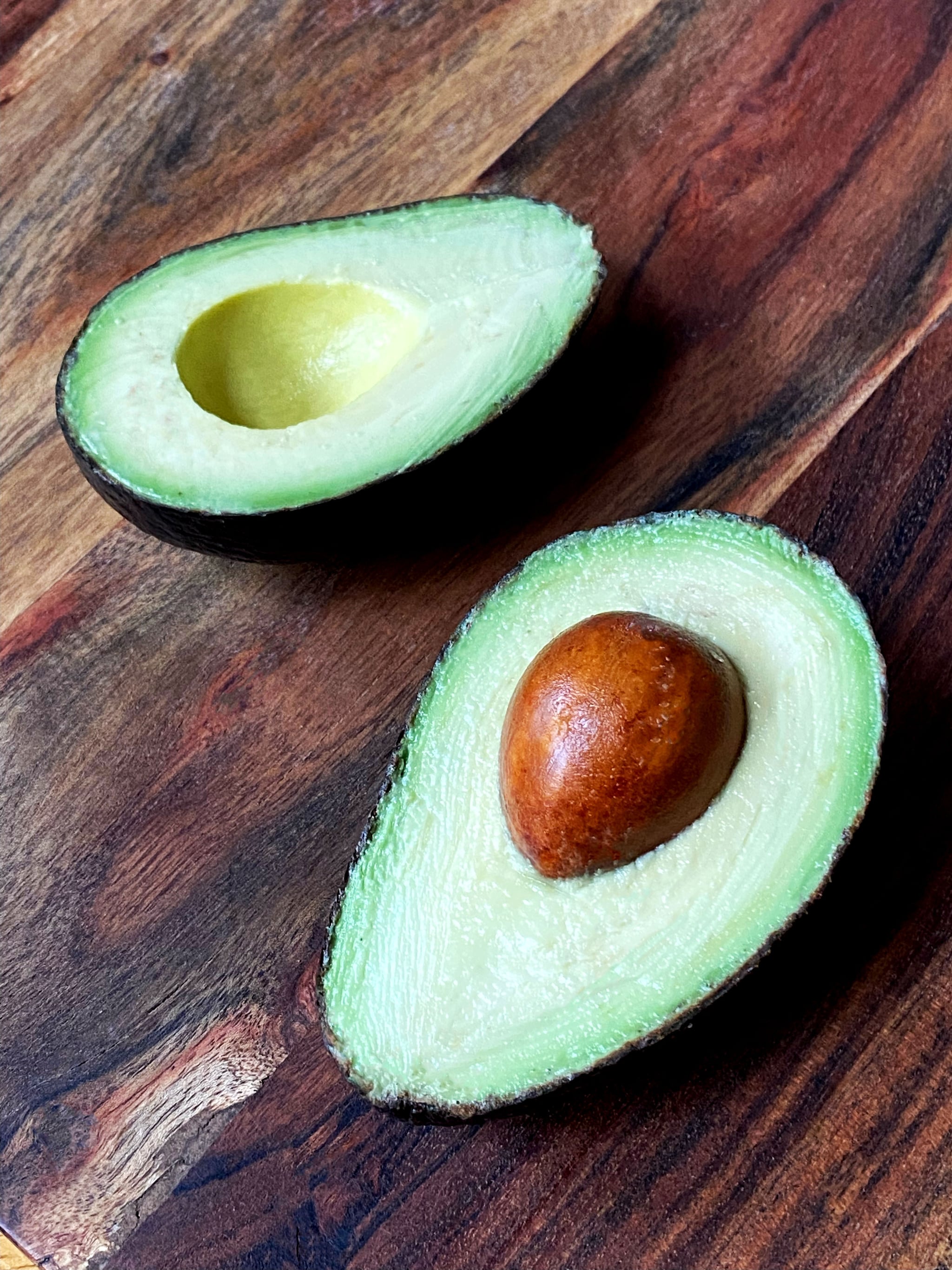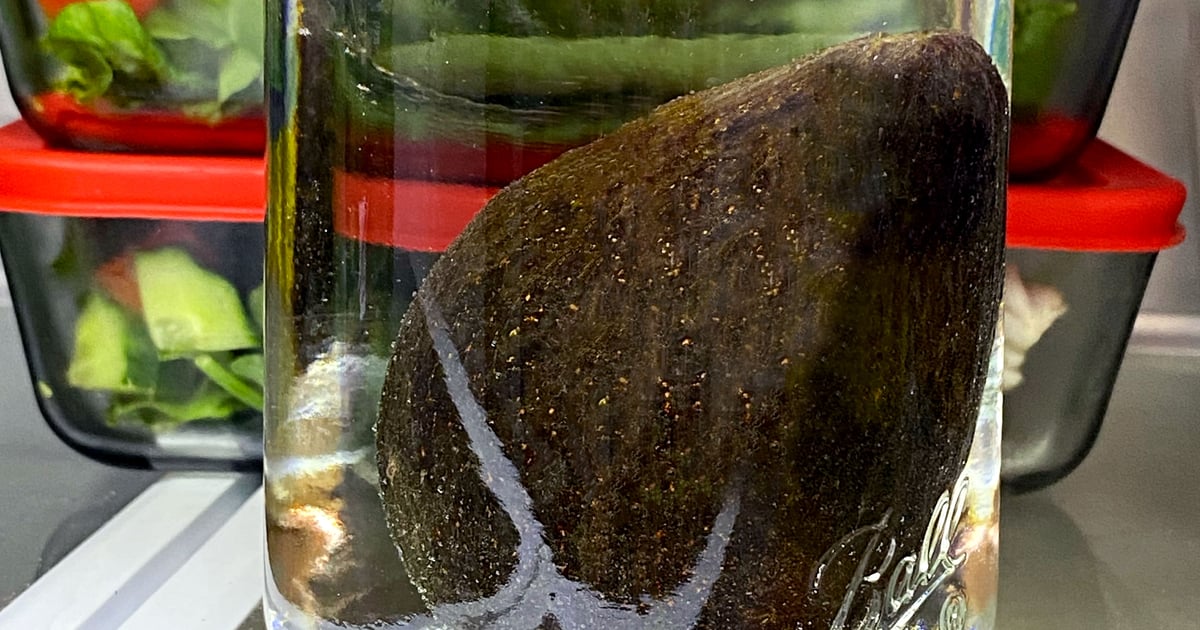
Whether you waited patiently for it to ripen on the counter or employed one of the many known avocado-ripening hacks, there’s nothing like the satisfaction of slicing open a perfectly ripe avocado. To save half an avocado, I’ve used tricks like brushing it with oil or freezing peeled chunks for smoothies. But recently, I’ve seen a lot of people try a viral hack where they submerge whole ripe avocados in water and then pop them in the fridge to keep them at perfect ripeness. But can you really store ripe avocados in water? Will they stay fresh? And more importantly, is it safe?
Does Storing Ripe Avocados in Water Work?
I had to try the hack for myself. I recently bought a bunch of avocados on sale and couldn’t eat enough tofu-avocado toast and avocado-basil pasta to use them all. I popped an avocado in a mason jar filled with water, and when I sliced it open five days later, it was still flawless. (Just feast your eyes on this perfection!) To be as scientific as possible, I also put a ripe avocado in the fridge without submerging it in water; that one was a little brown when I sliced it open five days later. It appears that storing avocados in water in the fridge really does work.

Is It Safe to Store Avocados in Water?
This magic trick might work, but you’ve heard it before: if it seems too good to be true, it probably is. Unfortunately, storing your ripe avocados in water in the fridge isn’t safe, and the Food and Drug Administration recommends against it. “The main concern is with the possibility that any residual human pathogens (Listeria or Salmonella) that may be residing on the avocado surface may potentially multiply during the storage when submerged in water,” an FDA spokesperson told Today.
Washing the avocado skin after it’s been soaking in water won’t guarantee that your avocado isn’t contaminated; FDA research has shown that pathogens like Listeria can seep into the pulp of the avocados. Washing your avocados beforehand doesn’t solve the problem, either. The FDA advises people to always wash produce like avocados thoroughly under running water with a scrub brush to wash off potential pathogens, such as Listeria. But even if you do so, you can’t guarantee that your avocado will be 100 percent pathogen free — and since bacteria can multiply in cold temperatures, it’s just not worth the risk.
How Should You Store Ripe Avocados?
So, how should you store those perfectly ripe avocados? The best option I’ve personally found is to store ripe avocados in the freezer. You can freeze them whole; when you’re ready to use one, take it out of the freezer, run it under hot water, let it sit on the counter for 15 minutes, peel, then enjoy! Just note that the texture might be a little different.
Another valuable tip is to store unripe avocados in the fridge like you would any other produce. They won’t ripen much in cold temperatures, so you’ll have more time to use them. When you’re ready, take one out so it can ripen for a couple of days on the counter. This ensures you always have a perfectly ripe avocado when you want one and that the others won’t go bad. Genius!
